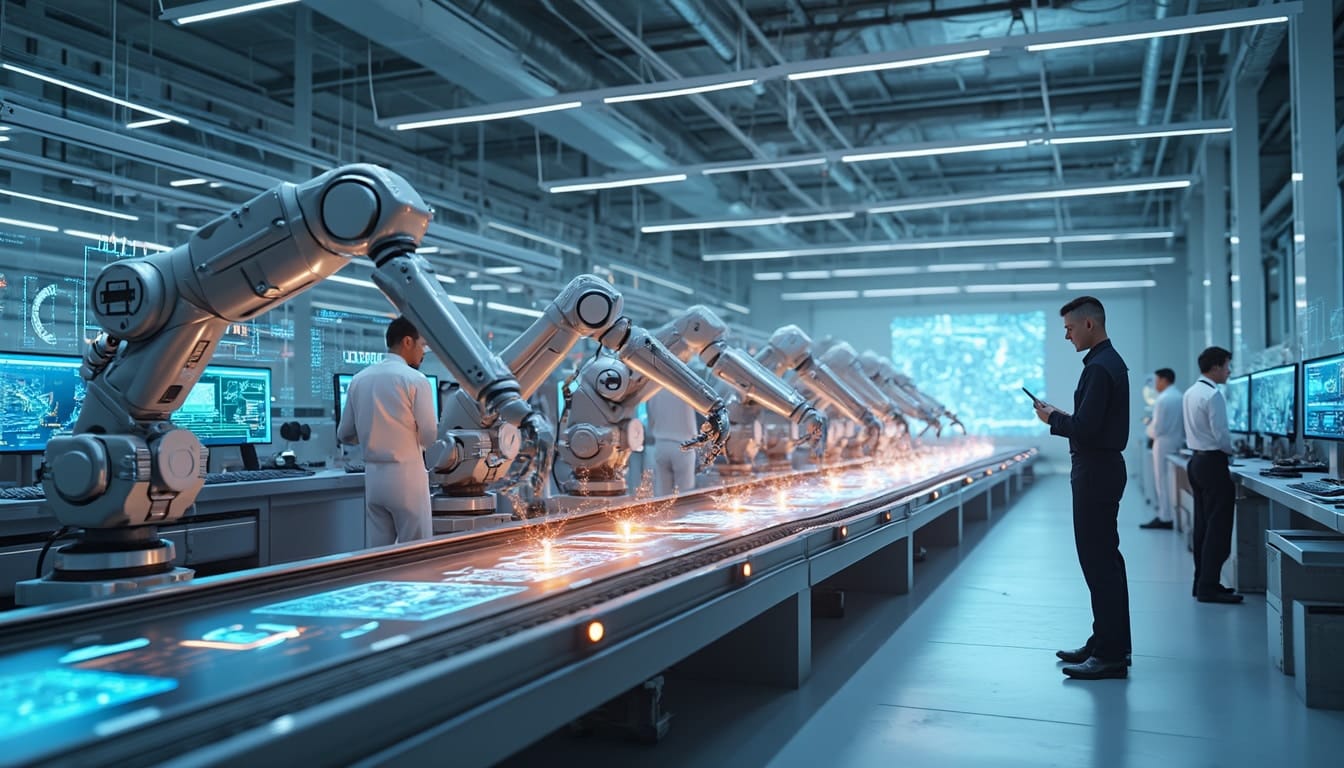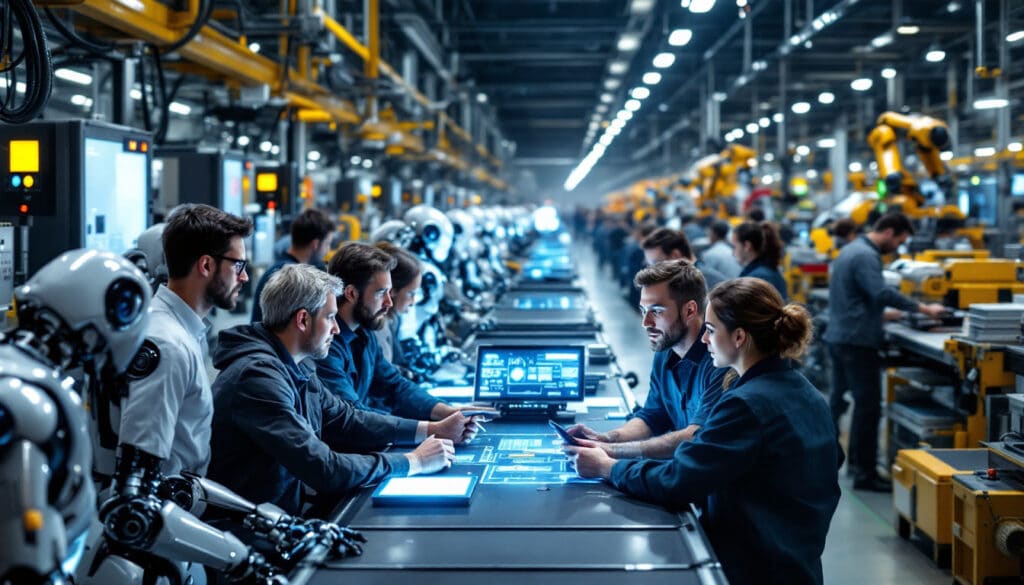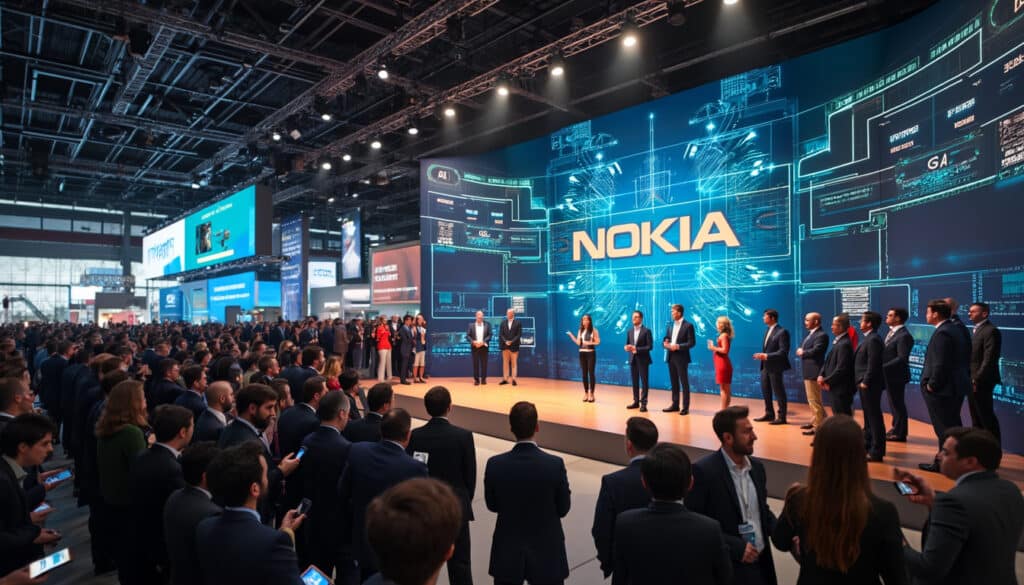The world of Industry 4.0 is continuously reinventing itself, where artificial intelligence (AI) and automation are redefining modern manufacturing. These advanced technologies are reorganizing production lines, optimizing both the efficiency and competitiveness of businesses. As industrial robots and additive manufacturing gain popularity, high implementation costs and interoperability challenges persist. Despite these obstacles, the deployment of 5G in cloud automation opens up new promising opportunities. This digital transformation is not without impact: it pushes the boundaries of innovation, contributing to the advent of a more resilient new industrial era. In the face of these evolutions, companies must adapt by leveraging the potential offered by AI to shape a revolutionary industrial future.

Table des matières
ToggleEvolution of Industry 4.0 through AI and Automation
Digital transformation is redefining modern manufacturing, accelerated by the integration of artificial intelligence (AI) and automation. By facilitating the implementation of more efficient and personalized processes, Industry 4.0 is continuously revolutionizing the manufacturing sector. The increasing adoption of AI in this field enables real-time data analysis and interpretation, providing companies with a significant competitive advantage.
Sectors such as automotive, aerospace, and many others see their production methods optimized through the integration of automation systems. These technologies not only improve product quality but also maximize productivity by reducing downtime and preventing errors.
Competitive Advantages Offered by Industry 4.0
With Industry 4.0, companies benefit from increased flexibility in procurement and production. Thanks to the strategic use of Internet of Things (IoT) and blockchain, it is now possible to track and manage flows much more accurately and efficiently. These innovations allow for better responses to customer demands and quick adaptations to market changes.
Challenges and Future Perspectives
Despite the numerous advantages, the transition to Industry 4.0 poses significant challenges, particularly regarding interoperability and cybersecurity. The integration of new technologies requires substantial investments and a skill adjustment within teams. Nevertheless, with the advent of 5G networks and the rise of cloud computing technologies, the prospects for Industry 4.0 are expanding, paving the way for even more disruptive innovations.





